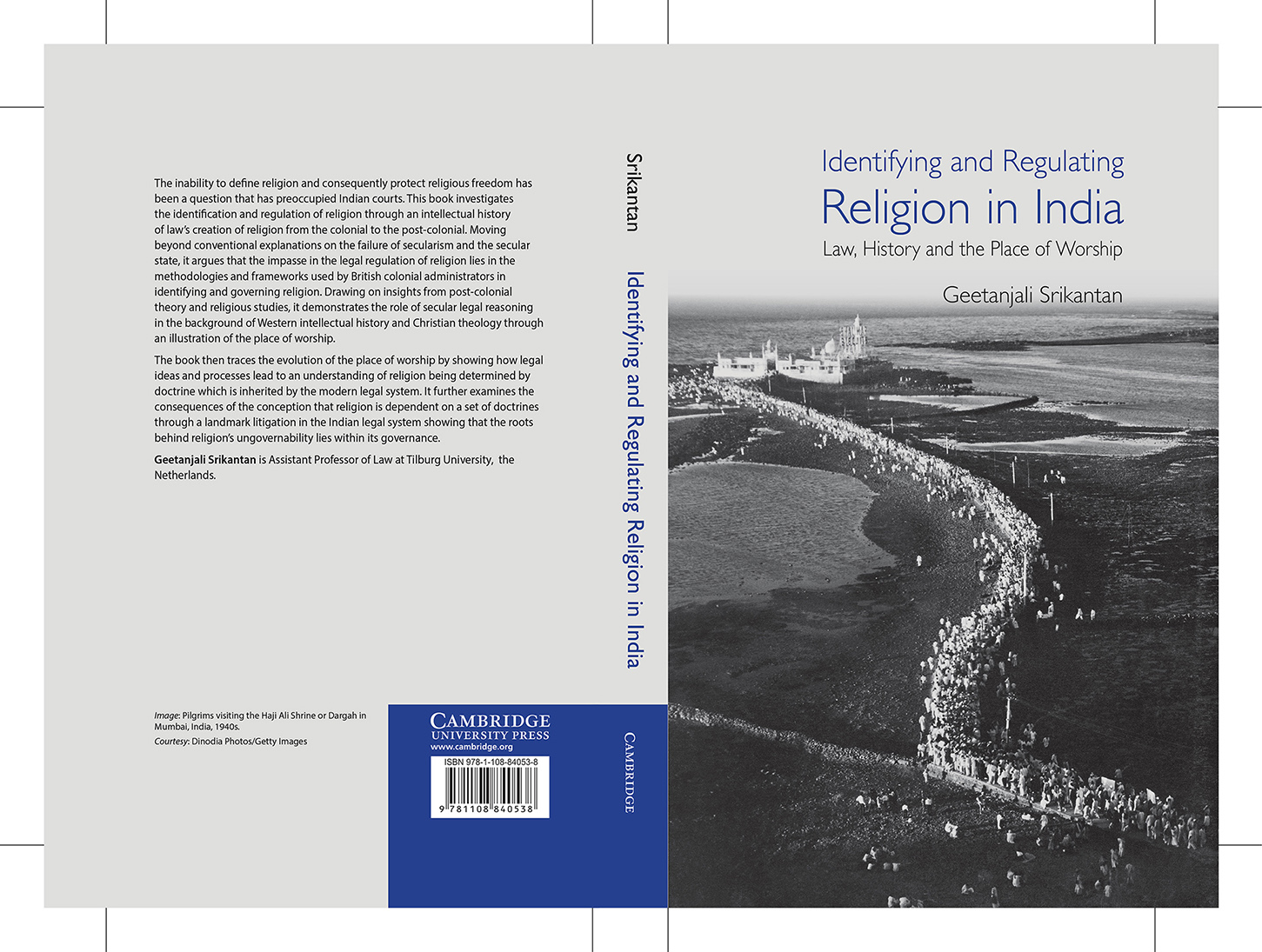Identifying and Regulating Religion in India: Law, History and the Place of Worship
The inability to define religion and consequently protect religious freedom has been a question that has preoccupied Indian courts. This book investigates the identification and regulation of religion through an intellectual history of law’s creation of religion from the colonial to the post-colonial. Moving beyond conventional explanations on the failure of secularism and the secular state, it argues that the impasse in the legal regulation of religion lies in the methodologies and frameworks used by British colonial administrators in identifying and governing religion. Drawing on insights from post-colonial theory and religious studies, it demonstrates the role of secular legal reasoning in the background of Western intellectual history and Christian theology through an illustration of the place of worship.
The book then traces the evolution of the place of worship by showing how legal ideas and processes lead to an understanding of religion being determined by doctrine which is inherited by the modern legal system. It further examines the consequences of the conception that religion is dependent on a set of doctrines through a landmark litigation in the Indian legal system showing that the roots behind religion’s ungovernability lies within its governance.
The book then traces the evolution of the place of worship by showing how legal ideas and processes lead to an understanding of religion being determined by doctrine which is inherited by the modern legal system. It further examines the consequences of the conception that religion is dependent on a set of doctrines through a landmark litigation in the Indian legal system showing that the roots behind religion’s ungovernability lies within its governance.

Publisher
Cambridge University Press
ISBN
9781108840538
Published
2020
Specialisation
Social Sciences
Theme
Religion
Law
History
Region
South Asia
India